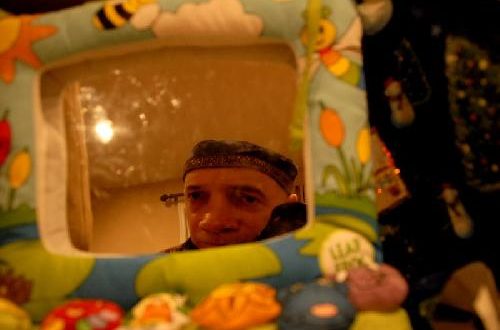Human beings are prone to distorted self-imaging. Nervously, we study ourselves in the carnival fun house mirrors of self-appraisal. Some mirrors make us look larger and return a grandiose and inflated image, while others make us look small and twisted. Often, we judge ourselves based on body image. But we are much more than our bodies, and our bodies are much more than their topographical reflections. Many people, especially those with body dysmorphia and eating disorders, are also highly inaccurate in appraising their topographical reflections.
One of the most absurd lies ever uttered is the common statement: “I don’t care what other people think.” Inevitably, this statement is made to influence how other people think of the speaker, creating an absurd self-contradiction. As social mammals, unless we are in a coma, are autistic, or have reached some rare state of inner independence, we care very much what other people think. Typically, we care too much about what they think. We arrive at a social occasion worried about our self-image and how others will appraise us, not realizing that the others in attendance are too preoccupied with their self-images to notice much about us.
Fortunately, there are some reliable ways to get out of the neurotic prison of distorted self-image. One is to shift in social situations from internal considering to external considering. With internal considering, you are evaluating everything from the perspective of your wants, needs, desires, feelings, and status. If you are locked into internal considering, you are on the timeline of the princess and the pea https://en.wikipedia.org/wiki/The_Princess_and_the_Pea, the whole world is your irritant, and everything seems to be conspiring against your comfort. With external considering, you are empathically focused on others. However, the benefits of external considering are not just for others. External considering is often the shortest path from a thousand forms of neurotic torment based on internal considering. In modern parlance, this principle is sometimes referred to as: “If in doubt, focus out.”
Another way out of the distorted self-image trap is to focus on what I call “existential impeccability.” This is the stance of the Warrior. Your focus shifts from self-evaluation and anxiety about how others evaluate you to impeccability — to dealing with what the moment presents with as much efficiency and grace as possible. Acts are done for their own sake, not to appear a certain way to yourself and others.
Another solution is William James technique of “acting as if.” Essentially, you move toward a quality you wish you had by acting as if you already had it. James had a few versions of this principle such as:
“Act as if what you do makes a difference. It does.”
“Act the part, and you will become the part.”
The modern parlance version of this principle is: “Fake it till you make it.” This principle is, however, morally neutral, so it is crucial what qualities you choose to act as if. Often, people act as if they were cool, and therefore, they become the kind of obnoxious jerk who does everything to be cool (hipsters, for example). The best applications of act as if are when the desired qualities serve transpersonal aims — e.g. acting as if you were compassionate. If you combine act as if with external considering, existential impeccability, and a commitment to make a contribution to the world, you have a royal path out of the disempowered prison of distorted self-image.
Finally, one of the most important life skills I’ve ever learned is not doing self and life evaluations on the fly. In the past, I would let moods drive continuous self and life evaluation as I went about my day. In bad moods, these evaluations were similarly downbeat, and in euphoric moods, I would create flattering sugar rush self-evaluations. Evaluating your self and your life on the fly is a dangerous method! Self and life evaluation are highly cognitively demanding projects where one needs an emotionally neutral state to have any chance of working through the million layers of subjectivity that come with trying to evaluate your self and your life.
I’m all for self and life evaluation where needed, however. So, if I’m going to take that on, it needs to be when I am at my best cognitively and not driven by a passing mood. For me, it needs to be during a morning journal writing session where I am writing the whole time.
If instead, you are continously reevaluating your self and your life based on every turning point in your day and while multi-tasking, you are going to get highly unstable and unreliable maps of your self and your life. When I was young, I used every mirror I walked past as an opportunity to self-evaluate.
DO NOT SELF OR LIFE EVALUATE ON THE FLY!!!
Do life and self-evaluate when you are ready to give that project your very best level of attention, focus, and cognition to make self and life maps, always remembering that the map is not the territory. If you have reliable spiritual allies, get them to check your work. Triangulate from other perspectives and compare to earlier maps.
Consider this an auspicious time to break free from the prison of distorted self-image
ing.
See:
How Others See You
Wounded Invisibility
Beauty in the Eye of the Phase Shifter
See also documents in the Warrior section
 ZapOracle.com home to the free 720-card Zap Oracle
ZapOracle.com home to the free 720-card Zap Oracle






